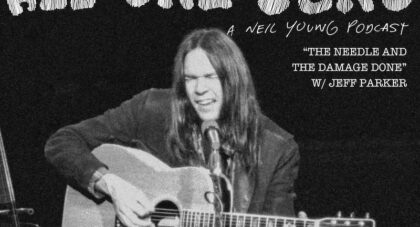It's hard to believe, in some ways, that it's been 25 years since Matthew Sweet's solo debut. Possibly even harder to believe it's been 20 since his career-breaking album, Girlfriend. Regardless, the perennial high priest of power pop returns September 27th with his eleventh LP, Modern Art. AD spoke with Sweet over the phone about the new album, surviving as a pop writer in the music industry, taking Girlfriend out on the road and the perils of listening to your old work. At the bottom, check out the Aquarium Drunkard premiere of "Late Nights With The Power Pop" from Sweet's upcoming album.
Aquarium Drunkard: You have a new record, Modern Art, which will be out on September 27th on Missing Piece Group. It sounds like an amalgam of a lot of your past songwriting. There are particular songs - "She Walks the Night" reminds me of parts of In Reverse and "When Love Let's Go, I'm Falling" reminds me of "You Don't Love Me" from Girlfriend - that feel like they come from certain eras, even while sounding like your recent recordings. Is that something you consciously feel, or is it that your whole body of work has pulled from similar sources over the years?
Matthew Sweet: Well, probably both things. To some extent, you're you, and there's only so much you can do to try and change that. [laughs] On the other hand, sometimes I might have a knowledge of that. When you mentioned "You Don't Love Me," "When Love Let's Go.." felt really heavy to me in kind of in the same way, I guess. It especially sticks in my mind because I was singing that song when my wife came in and told me that Alex Chilton had died. It's strangely apropos. That little moment sticks in my mind, even though that song was already written and had the vibe and everything. It's not something I think about a lot. I might think "Oh, this is a 'I've Been Waiting' sort of song," or something like that, but not real specifically.
AD: Speaking of Chilton, the song does remind me of some of the darker ballads from Big Star's Third.
MS: It made me really think a lot about Big Star's influence on me. I was listening to that album as a senior in high school. I went last spring and sang on a performance of Third in New York City that Chris Stamey of the Db's organized. Guys from REM were involved - Mike Mills played bass - and Jody Stephens, Big Star's drummer, was kind of an anchor. And it made me think a lot about their influence on me. It really made it hard for me to imagine not having heard those dark ballads. Just to know you could go there - that's why Chilton was one of my main guys. He could do all sort of emotions - he could be funny and cynical or honest and straightforward, or he could go really dark and morbid. Guys like John Lennon - people I really admire - could do that sort of stuff.
During the time Big Star got its big revival, I kind of felt like I kept quiet about the amazing amount of influence they had on me because it seemed like everybody was having a big influence from them. Nobody needed another guy going on about it. Whereas, when I go back and look at them, it feels really important.
Only the good shit. Aquarium Drunkard is powered by its patrons. Keep the servers humming and help us continue doing it by pledging your support.
To continue reading, become a member or log in.


